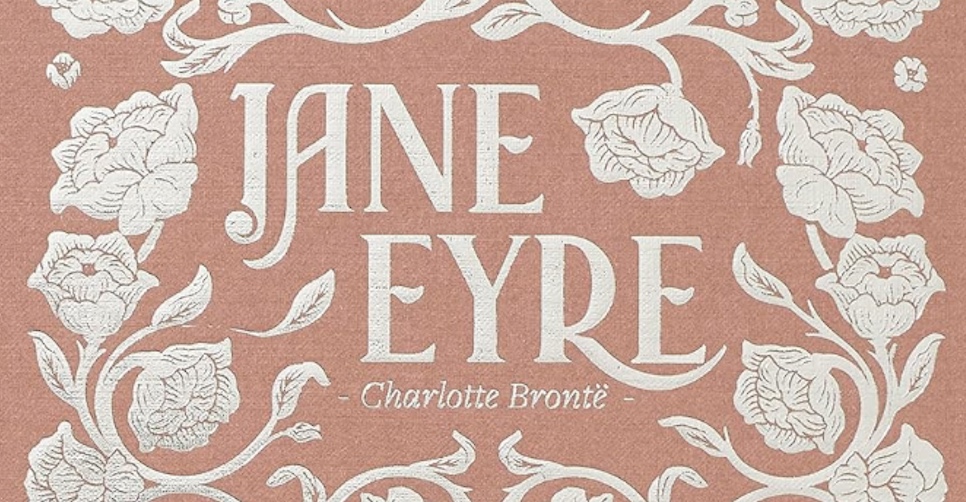(Spoiler alert: do not read on if you do not want to find out about the main plot line of this 177-year-old novel!)
“Jane Eyre” by Charlotte Brontë is a captivating Victorian novel that follows the journey of its titular protagonist, Jane Eyre, from her troubled childhood to adulthood. Orphaned at a young age, Jane is sent to live with her cruel aunt, one Mrs. Sarah Reed, at Gateshead Hall, where she faces neglect and abuse.
After enduring a harsh upbringing, including her time at Lowood School as a pupil and eventually as a teacher, Jane secures a position as a governess at Thornfield Hall, where she meets the enigmatic and brooding Mr. Rochester, the master of the house. Despite their differences in social status, Jane and Mr. Rochester form a deep connection and fall in love. However, their happiness is threatened by the revelation of Mr. Rochester’s dark secret: his mad wife, Bertha, whom he keeps hidden away in the attic. Jane is faced with difficult decisions that test her integrity and resolve. Ultimately, she chooses to walks away from Mr. Rochester, unwilling to compromise her principles for the sake of love.
Reading through Jane’s own account of her time at the austere Lowood School, it struck me that it is not the adherence to some dogma or ideology that leaves the deepest imprint on a person’s soul, but rather the small yet concrete acts of kindness one receives from a fellow human being. For Jane, it is the warmth of Miss Temple’s extra piece of toast or her friend Helen’s comforting words that resonate far more deeply than the theological correctness of the many worship services and prayers held daily at the charity school.
Another thing that struck me while reading Jane’s own account of her life journey was her relationship with the Christian doctrine. Despite her keen intellect, my take on Jane is that she is on the whole quite slow to grasp or apply the truth of the Gospel, contrasting sharply with the fervent embrace of faith displayed by her short-lived companion, Helen. While Helen finds solace and purpose in her firm understanding of the concepts such as Christian grace and redemption, Jane remains somewhat dull, unable to extend beyond her narrow focus on herself to appreciate the deeper spiritual meaning. Interestingly, I have seen exactly this in (some of) my own children; I realise that the grasp of spiritual truths is often un-correlated with intellectual ability.
However dull she may have been to understand the subtleties of some Christian doctrines, Jane remains nevertheless a morally upright Christian, and her steadfast refusal to succumb to temptation, particularly in her relationship with Mr. Rochester, stands as a testament to her unwavering integrity. As the revelation of Mr. Rochester’s dark secret threatens to upend her world, Jane’s resolute decision to run away from Thornfield Hall, despite her deep affection for Mr Rochester, is a profound display of her inner strength and commitment to her principles.
Taking a step back, especially as a Christian, one can see the omnipotent and faithful hand of God in leading her steps (during the three harrowing days of wandering in the wild and being rejected multiple times by strangers, shopkeepers etc) to literally end up at the doorsteps of her three estranged cousins hundreds of miles away from Thornfield Hall, at exactly the time when all three were gathered from all over England to attend their father’s recent funeral. To me, this divine guidance is the bigger miracle than the climatic “telepathic” communication between Rochester and Jane at the end of the novel. As Christians, do we not also have many stories where we can testify to the faithful hand of God orchestrating all things for the good of those who love Him? At such times, we join Moses who burst into the following doxology:
“Who is like you O LORD, amongst the gods? Who is like you?
You are majestic in holiness, awesome in praises, doing wonders.”
Exodus 15:11
Towards the latter half of the novel, St. John Rivers emerges as a complex figure whose fervent religious zeal masks a profound misunderstanding of human nature and love. While possessing a deep understanding of religious doctrine and a fervent desire to serve God, St. John’s misguided proposal to Jane, devoid of love and rooted in duty, serves as a cautionary tale of the risks of prioritising dogma at the cost of genuine human emotion. In the end, St. John’s solitary and arduous existence serves as a poignant reminder of the importance of authentic emotional connection in the human experience.
Throughout the pages of “Jane Eyre”, Charlotte Brontë’s mastery of the English language is nothing short of awe-inspiring. With unparalleled skill, Brontë not only paints vivid portraits of settings and characters but delves deep into the intricate complexities of Jane Eyre’s inner world. Through her prose, Brontë brings to life the tumultuous emotions, poignant reflections, and moral dilemmas that shape Jane’s journey, inviting readers into the very depths of her psyche. Each word is carefully chosen, each sentence crafted with precision, to convey the richness of Jane’s experiences with a clarity and resonance that is simply unmatched. (I learned many new English words in the course of reading this book: did you know that “victualage” is an actual English word that means food? ) I am so thankful to God for opening my eyes to experience the power of masterful storytelling in action.




